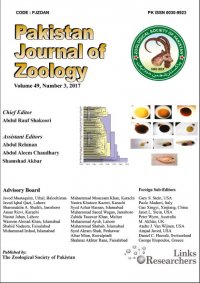1Department of Entomology, University of Agriculture, Faisalabad, 38040, Pakistan
2Bahauddin Zakariya University, Bahadur Sub-Campus, Layyah, Pakistan
3Centre of Agricultural Biochemistry and Biotechnology, University of Agriculture, Faisalabad, 38040, Pakistan
ABSTRACT
To enhance their life period and reproductive potential, the adults of parasitoids mostly depend on supplemental food sources, such as sugars and other carbohydrates. These food resources are commonly obtained from animal secretions or plant exudates which include honeydew, fruit juices and both floral and extra-floral nectar. A direct behavioral assay was conducted to investigate the dietary preference and effects of different diets on the fecundity, sex ratio and longevity of B. hebetor. Three different diets [Honey syrup, sugar syrup, date syrup and a control (water)] were used with different solution percentage (25, 50, 75 and 90%). It was observed that honey fed wasp pair produces significantly more number of eggs, adults and also lived significantly longer than other treatments. Highest fecundity and longevity of parasitoid was recorded in case of parasitoids feeding on 50% honey solution followed by 25% sugar and date syrups solutions respectively. It has provided useful information for the mass rearing of this potential biocontrol agent which may be used in the successful implementation of biocontrol program for the suppression of pyralid pest insects damaging different agricultural crops of economic importance.
To share on other social networks, click on any
share button. What are these?









